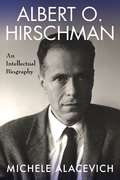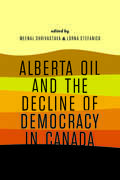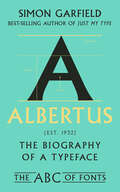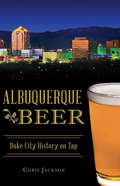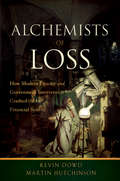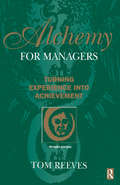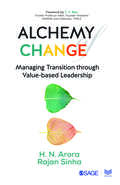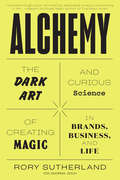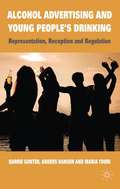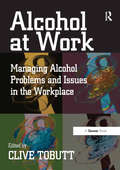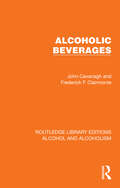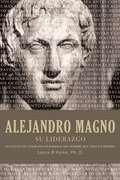- Table View
- List View
Albert "Jack" Stanley in Nigeria (B)
by Lena G. Goldberg Chad M. CarrThe case describes Albert "Jack" Stanley's response to actions initiated against him by the U.S. Department of Justice and the SEC.
Albert "Jack" Stanley in Nigeria (C)
by Lena G. Goldberg Annelena LobbThe international joint venture that successfully bid for $6 billion in contracts to build LNG trains on Nigeria's Bonny Island became entangled in a widening bribery and corruption probe triggered by an unrelated accusation against an employee of one of the JV partners. The (A) case discusses the JV's "business as usual" approach to doing business in the context of Nigeria's political culture and the involvement of Albert "Jack" Stanley, the JV's alleged manager, in structuring and implementing an elaborate bribery scheme. The "B" case relates Stanley's actions after he became the subject of multiple investigations and was terminated by Halliburton, parent of the U.S. JV partner, for taking kickbacks. The "C" case details the resolution of bribery and corruption allegations against Stanley, several of his associates and the JV partners.
Albert "Jack" Stanley in Nigeria (C)
by Lena G. Goldberg Annelena LobbThe international joint venture that successfully bid for $6 billion in contracts to build LNG trains on Nigeria's Bonny Island became entangled in a widening bribery and corruption probe triggered by an unrelated accusation against an employee of one of the JV partners. The (A) case discusses the JV's "business as usual" approach to doing business in the context of Nigeria's political culture and the involvement of Albert "Jack" Stanley, the JV's alleged manager, in structuring and implementing an elaborate bribery scheme. The (B) case relates Stanley's actions after he became the subject of multiple investigations and was terminated by Halliburton, parent of the U.S. JV partner, for taking kickbacks. The (C) case details the resolution of bribery and corruption allegations against Stanley, several of his associates and the JV partners.
Albert O. Hirschman: An Intellectual Biography
by Michele AlacevichOne of the most original social scientists of the twentieth century, Albert O. Hirschman led an uncommonly dramatic life. After fleeing Nazi Germany as a youth, he fought in the Spanish Civil War, took part in antifascist activities in Italy, and organized an underground rescue operation in Marseille through which more than 2,000 people, including Marc Chagall, Arthur Koestler, and Hannah Arendt, escaped Europe. Hirschman moved across topics, methodologies, and disciplinary boundaries as fluidly as he did among countries and languages. His work is marked by a deep suspicion of all-encompassing theories, valuing instead doubt and a sensitivity to contingencies and unexpected consequences.In this intellectual biography, the economic historian Michele Alacevich explores the development and trajectory of Hirschman’s characteristic approach to social-scientific questions. He traces the many strands of Hirschman’s thought and their place in his multifaceted body of work, considering their limitations as well as their strengths. Alacevich puts Hirschman’s ideas into context, following his participation in the major intellectual and political debates of his times. He examines Hirschman’s pioneering work in development studies and his analyses of social change, the history of capitalism, and the workings of democracy alongside his activities in the postwar reconstruction of Europe and economic development in Latin America. A compelling intellectual portrait of a profoundly distinctive thinker, this book also reflects on Hirschman’s legacy and lasting influence.
Alberta Oil and the Decline of Democracy in Canada
by Paul Kellogg Bob Barnetson Gabrielle Slowey Jason Foster Josh Evans Joy Fraser Karen Wall Lorna Stefanick Manijeh Mannani Meenal Shrivastava Peter Jay Smith Ricardo Acuna Sara Dorow Trevor HarrisonPrior to May 2015, the oil-rich jurisdiction of Alberta had, for over four decades, been a one-party state. During that time, the rule of the Progressive Conservatives essentially went unchallenged, with critiques of government policy falling on deaf ears and Alberta ranking behind other provinces in voter turnout. Given the province’s economic reliance on oil revenues, a symbiotic relationship also developed between government and the oil industry. Cross-national studies have detected a correlation between oil-dependent economies and authoritarian rule, a pattern particularly evident in Africa and the Middle East. Alberta Oil and the Decline of Democracy in Canada sets out to test the “oil inhibits democracy” hypothesis in the context of an industrialized nation in the Global North. In probing the impact of Alberta’s powerful oil lobby on the health of democracy in the province, contributors to the volume engage with an ongoing discussion of the erosion of political liberalism in the West. In addition to examining energy policy and issues of government accountability in Alberta, they explore the ramifications of oil dependence in areas such as Aboriginal rights, environmental policy, labour law, women’s equity, urban social policy, and the arts. If, as they argue, reliance on oil has weakened democratic structures in Alberta, then what of Canada as whole, where the short-term priorities of the oil industry continue to shape federal policy? In Alberta, the New Democratic Party is in a position to reverse the democratic deficit that is presently fuelling political and economic inequality. The findings in this book suggest that, to revitalize democracy, provincial and federal leaders alike must find the courage to curb the influence of the oil industry on governance.
Albertus: The Biography of a Typeface (The ABC of Fonts Series #0)
by Simon GarfieldA compact and charming history of the beloved handcrafted font by the New York Times best-selling author of Just My Type. Albertus, first carved on a bronze tablet in the 1930s by German Jewish refugee Berthold Wolpe, has proved to be one of the most enduring handcrafted typefaces in the world. It is at once modern and timeless, authoritative and whimsical—renowned as the typeface of London Street signs, David Bowie albums, and Star Wars movie posters. In this unique celebration, best-selling author Simon Garfield charts the story of the creation of Albertus, its innumerable and vibrant uses, and the erratic brilliance of its designer, as recounted by Wolpe’s children. Through his exploration of this singular font, Garfield grapples with one of the most fundamental artistic questions: what makes great art not only survive but flourish in each new age and medium?
Albuquerque Beer: Duke City History on Tap (American Palate)
by Chris JacksonAlbuquerque’s commercial brewing scene dates back to 1888, when the Southwestern Brewery & Ice Company was launched. It later churned out thirty thousand barrels of beer per year and distributed throughout the region. Nearly thirty years later, Prohibition halted brewing save for a brief comeback in the late 1930s. In 1993, the modern era emerged with a handful of breweries opening across the city. However, Marble Brewery’s 2008 opening revived Albuquerque’s dormant craft beer scene. Since its opening, the city has welcomed dozens of breweries, brewpubs and taprooms. Writer Chris Jackson recounts the hoppy history of brewing in the Duke City.
Alchemists of Loss
by Martin Dowd Kevin K. HutchinsonAn engaging look at how modern finance almost destroyed our global economy Over the last thirty years, capital markets have been restructured through the tenets of modern finance. This has been enormously profitable for the financial services sector. However, these innovations, coupled with unsound risk and regulatory practices have proved disastrous for the global economy. In a clear and accessible style, ex-investment banker and financial journalist Martin Hutchinson, and highly respected academic, Kevin Dowd show how modern finance combined with easy money threatened to bring down the world financial system. At the heart of the book is modern finance as a U. S. invention, the theories and practices associated with them, and the changes they made in business models and risk management on Wall Street and other major financial centers. Breaks down the events involved in the 2007-08 financial collapse Reveals how botched policy response made a bad situation worse Focuses on lessons that the practice of finance must learn from recent events The Alchemists of Loss will help you to understand how our financial system crashed and show you what it will take to make sure this won't happen again as we move forward.
Alchemy for Managers: Turning Experience Into Achievement
by Tom ReevesAlchemy for Managers demonstrates how you can develop yourself through the actual experience of managing. Alchemy for Managers shows: - how you can use your practical experience as a self-contained means to develop yourself - without having to go on a course - how your own projects can develop your competence in both leadership and management - how managing external actions and your internal thought processes can be brought together in an integrated, holistic way.
Alchemy of Change: Managing Transition through Value-Based Leadership
by H N Arora Rajan SinhaChange is inevitable and usually painful. A spoonful of empathic leadership, a smattering of new tools and a few sachets of foundational values boil together to create organizational transformation. However, not all change efforts are successful. Alchemy of Change shows that value-based institutions, which evolve from the wisdom of the soil, can bring about enduring change. Introducing the Indian Model of Change, which is based on Indian values of leadership, dialogue, mutual respect, and goal setting, the authors explain how the nuances and distinctions of the Indian mindset and cultural backdrop can help to keep pace with today’s fast-changing world. Through real case studies and references from diverse literature, the book shows that change management cannot be treated as a mechanical exercise because change affects and is affected by human emotions, both at an individual and collective level. It is an insightful read for senior management and HR professionals, for all stakeholders who are entrusted with the task of facilitating or bringing about change in an organization, as well as students of change. For the general reader, the book can be a journey in self-awareness and growth.
Alchemy: The Dark Art and Curious Science of Creating Magic in Brands, Business, and Life
by Rory SutherlandHOW DOES MAGIC HAPPEN? The Ogilvy advertising legend—“one of the leading minds in the world of branding” (NPR)—explores the art and science of conjuring irresistible products and ideas."A breakthrough book. Wonderfully applicable to about everything in life." —Nassim Nicholas Taleb, author of The Black Swan“Veins of wisdom emerge regularly and brilliantly from these pages. Don't miss this book.” —Robert B. Cialdini, author of InfluenceWhy is Red Bull so popular, though everyone—everyone!—hates the taste? Humans are, in a word, irrational, basing decisions as much on subtle external signals (that little blue can) as on objective qualities (flavor, price, quality). The surrounding world, meanwhile, is irreducibly complex and random. This means future success can’t be projected on any accounting spreadsheet. To strike gold, you must master the dark art and curious science of conjuring irresistible ideas: alchemy.Based on thirty years of field work inside the largest experiment in human behavior ever conceived—the forever-unfolding pageant of consumer capitalism—Alchemy, the revolutionary book by Ogilvy advertising legend Rory Sutherland, whose TED talks have been viewed nearly seven million times, decodes human behavior, blending leading-edge scientific research, absurdly entertaining storytelling, deep psychological insight, and practical case studies from his storied career working on campaigns for AmEx, Microsoft, and others.Heralded as “one of the leading minds in the world of branding” by NPR, Sutherland is a unique thought leader, as comfortable exchanging ideas with Nobel Prize winners Daniel Kahneman and Richard Thaler (both interviewed in these pages) as he is crafting the next product launch. His unconventional and relentlessly curious approach has led him to discover that the most compelling secrets to human decision-making can be found in surprising places:What can honey bees teach us about creating a sustainable business?How could budget airlines show us how to market a healthcare system?Why is it better to be vaguely right than precisely wrong?What might soccer penalty kicks teach us about the dangers of risk-aversion?Better “branding,” Sutherland reveals, can also be employed not just to sell products, but to promote a variety of social aims, like getting people to pay taxes, improving public health outcomes, or encouraging more women to pursue careers in tech. Equally startling and profound, Sutherland’s journey through the strange world of decision making is filled with astonishing lessons for all aspects of life and business.
Alcoa's Bid for Alcan (A)
by Paul M. Healy Penelope RossanoIn spring 2007, Alcoa CEO Alain Belda was concerned about the company's market position in light of increased competition from developing markets. China's recent entry into the aluminum market was affecting both supply and demand. Furthermore, downstream and upstream product was coming on-line from other parts of the world, including Russia. As a result, Alcoa had lost its historical market dominance and stock premium. Belda was convinced that for Alcoa to regain its leadership position, the company would have to increase efficiencies by expanding its scale, diversification and reach. The acquisition of a large competitor presented the best opportunity to achieve this goal and, as a result, he was particularly intrigued by Canadian rival, Alcan because its assets would complement Alcoa's portfolio and enhance its reach. Further, Alcan had sold off non-aluminum assets, essentially making it a pure play in aluminum. That and its access to relatively cheap Canadian hydro power made it an even more intriguing acquisition opportunity for Alcoa. However, another major competitor, Rio Tinto, was also interested in Alcan; the company was in play.
Alcoa's Bid for Alcan (B)
by Paul M. Healy Penelope RossanoIn spring 2007, Alcoa CEO Alain Belda was concerned about the company's market position in light of increased competition from developing markets. China's recent entry into the aluminum market was affecting both supply and demand. Furthermore, downstream and upstream product was coming on-line from other parts of the world, including Russia. As a result, Alcoa had lost its historical market dominance and stock premium. Belda was convinced that for Alcoa to regain its leadership position, the company would have to increase efficiencies by expanding its scale, diversification and reach. The acquisition of a large competitor presented the best opportunity to achieve this goal and, as a result, he was particularly intrigued by Canadian rival, Alcan, because its assets would complement Alcoa's portfolio and enhance its reach. Further, Alcan had sold off non-aluminum assets, essentially making it a pure play in aluminum. That and its access to relatively cheap Canadian hydro power made it an even more intriguing acquisition opportunity for Alcoa. However, another major competitor, Rio Tinto, was also interested in Alcan; the company was in play.
Alcohol Advertising and Young People’s Drinking
by Barrie Gunter Anders Hansen Maria TouriThere is widespread and growing concern about the use of alcohol in society, especially by young people. Although overall volumes of alcohol consumption may be levelling off, the occurrences of excessive or 'binge' drinking, especially among teenagers and young adults, are increasingly commonplace. Tackling irresponsible drinking, which is linked to other antisocial behaviour and health problems, has focused attention on the promotion of alcohol by its producers as an important causal factor. This has led to calls for tougher regulation of alcohol marketing, including restrictions on where it can occur and the form it is allowed to take. Empirical research evidence, often emanating from government funded enquiries and endorsed by health lobbies, has been cited in support of an allegedly primary role played by advertising in triggering interest in and the onset of alcohol consumption among young people and in encouraging regular and heavy drinking. Close examination of this evidence, however, reveals that the research is not always as cut and dried as it may first appear. Methodological weaknesses abound in studies of the purported effects of alcohol advertising and other forms of marketing and the significance specifically of advertising as an agent that shapes young people's alcohol consumption could be weaker than often thought. This book sets out a review and critique of the evidence on alcohol advertising and marketing effects on young people and considers this evidence in relation to codes of advertising and marketing practice.
Alcohol and Entertainment Licensing Law
by Colin Manchester Susanna Poppleston Jeremy AllenThis comprehensive and authoritative guide to licensing law is co-authored by the UK’s only professor of licensing law and two eminent licensing practitioners. It provides a detailed exposition and contextual analysis of the legal provisions governing the licensing of alcohol and entertainment under the Licensing Act 2003, encompassing both the legislative and decision-making framework of the Act as well as its implications for human rights. Fully updated and revised, it covers the various forms of authorization for licensable activities and licence and certificate conditions that might be attached as well as the enforcement and appeal provisions of the Act. This new edition, building on the highly acclaimed original work published in 2005, includes subsequent legislative changes and case law decisions. New additions to this edition include: expanded coverage of enforcement provisions and police powers a revised and extended chapter on appeals, in light of the practical and procedural developments that have evolved in the appeal process amendments to existing regulations and the revised Statutory Guidance issued in 2007. This book is essential reading for all local authorities, legal advisers, licensing policy advisors, operators and the police as well as those applying for licences.
Alcohol at Work: Managing Alcohol Problems and Issues in the Workplace
by Clive TobuttIn the European Union many individuals will partake in drinking a little wine with their lunch or dinner to aid their enjoyment of the meal or as an appetizer for food. Alcohol is also a drug of dependence. Some individuals will drink too much and some of them will become addicted. Access to alcohol, binge drinking, and younger drinkers can lead to unsafe workplaces, absenteeism, fraud and criminal behaviour. Alcohol at Work is a definitive guide to the problem, exploring its nature and scale and providing a complete range of ideas and techniques to help create a policy in the workplace and develop appropriate and effective measures for monitoring and tackling alcohol abuse. The key collective message is solve the problem - take the alcohol, not the person, out of the workplace. In the UK alone, research puts the cost of alcohol abuse in the workplace at £2 billion a year. This is a must-have reference for human resource, occupational health and risk managers, as well as those involved in tackling criminal behaviour such as fraud and violence at work resulting from alcohol abuse and addiction.
Alcohol at Work: Tackling Workplace Drinking to Improve Wellbeing
by Lauren BookerFrom uninsured losses to workplace injuries, from absenteeism to addiction, alcohol consumption can have a major impact on the workplace. Lost productivity alone costs the UK economy more than £7 billion annually. What’s more, the impact of alcohol abuse on the employee and those around them is a wellbeing issue that all employers need to be alert to, especially with many now choosing to work from home.Alcohol at Work: Tackling Workplace Drinking to Improve Wellbeing will guide health and safety professionals through the practical steps that they can take to mitigate risk and improve wellbeing, safeguarding and inclusivity. The book explores key topics such as driving legislation, the use of alcohol testing, stressful jobs and designing and implementing an alcohol policy that uses practical examples that highlight common workplace scenarios. It translates evidence-based research into workable solutions using tools that enable organisations to influence workplace culture, policies and practices so they can meet their legal obligations and ensure a thriving workforce. It delves into the legal aspects of alcohol abuse at work, offering treatment and adopting an alcohol and wellbeing policy for a business. This comprehensive guide will help the reader to understand and adopt practices that mitigate the risks of employees developing an alcohol problem and ensure that employers can tackle the issue head-on should it arise.This book is an essential read for any professional in occupational health and safety, human resources, business and management, policy creation, insurance and corporate governance.
Alcoholic Beverages (Routledge Library Editions: Alcohol and Alcoholism)
by John Cavanagh Frederick F. ClairmonteFor most of the post-war period, alcohol problems had been viewed primarily as individual problems. During the 1970s and 1980s, research highlighted the importance of larger socio-economic factors in shaping drinking levels, patterns and problems. However, it largely ignored a paramount force which shaped this larger socio-economic environment: the modern multinational corporation. The aim of this book, originally published in 1985, was to demonstrate, on the basis of historical analysis, that transnational corporate structures and marketing strategies exercised a powerful impact on the availability and consumption of alcoholic beverages in both developed and developing marketing economies. While the authors did not want to suggest a single causal relationship between corporate strategies and the consumption of alcoholic beverages, the implications of their work were of the greatest significance to public health throughout the world. The book was an indispensable work for those interested in public health, alcoholism, and multinational business at the time. Today it can be read in its historical context.
Alden Products, Inc.: European Manufacturing
by Robert H. HayesThe European organization of Alden Products, Inc. is contemplating a doubling of unit sales over the next ten years. Their largest plant, located in Holland, was set up 25 years earlier to supply all demands of the EEC countries on the continent. It has since expanded six times. Should it expand again? Should it build a new plant in Southern Europe? Or should it increase subcontracting?
Aldi: The Dark Horse Discounter
by David Lane Eric J. Van Den SteenIn 2013, Aldi—the world's 8th largest retailer—planned to accelerate its US expansion. Aldi was a German-based hard discounter that sold a limited assortment of private-label groceries and household items in barebones stores. Despite its presence with 1200 stores in 32 states, Aldi was still relatively unknown in the US. But it was often cited as one of the reasons for Walmart's exit from Germany. Could it compete with Walmart in the US, Walmart's home market?
Aldrich Capital Partners
by Jo Tango Alys FerragamoBy July 2016, the Aldrich Capital Partners team had spent over two years trying to raise their inaugural growth-equity fund. They had pitched to over 140 investors, but none had committed. Managing Partners Mirza Baig and Raz Zia each had extensive experience in the growth-equity space, but they did not have an investment track record together. Investors seemed hesitant to commit to a "blind pool" of capital with a new team. Now, the partners were contemplating an investment in a company code-named "Hollywood." The deal had several risks and was not a perfect fit with their investment thesis, but the partners wondered if this deal could prove their abilities and strategy to investors. Should Aldrich invest in Hollywood?
Alejandro magno su liderazgo
by Lance B. KurkeLíderes excepcionales son los que tienen la capacidad de analizar los problemas, optimizar los recursos, inspirar lealtad y ejecutar estrategias. No hay ejemplo tan impactante en la historia como el de Alejandro Magno, cuyas habilidades de liderazgo eran tan inmensas que resuenan todavía hoy, alrededor de 2.000 años después. Alejandro Magno su liderazgo, revela cuatro procesos de liderazgo que se extraen de la vida y los extraordinarios logros de Alejandro, Rey de Macedonia. Los lectores aprenderán como él: reencuadraba los problemas para abordar retos que parecían invencibles; construía alianzas usando su fuerza para generar confianza y respeto, no solo temor; estableció una identidad y se puso a sí mismo el "sello" de unificador, manteniendo así su territorio seguro mientras continuaba con la expansión del imperio; reconocía y asimilaba las culturas y símbolos de diferentes pueblos, lo que lo hacía una figura poderosa y confiada adondequiera que fuese. Alejandro Magno su liderazgo relata 34 fascinantes episodios de la expansión de Alejandro a través de Asia Menor, Egipto, Mesopotamia, el Medio Oriente, el Imperio Persa y la India. Cada ejemplo, ligado a un homólogo contemporáneo, provee valiosas lecciones, basadas en la inmortal leyenda de uno de los más grandes líderes de la historia.
Aleksandr Nikolaevich Engelgardt's Letters from the Country, 1872-1887
by Aleksandr Nikolaevich EngelgardtAleksandr Nikolaevich Engelgardt's first letter "From the Country" appeared in the May 1872 issue of the literary-political journal Notes of the Fatherland, published in St. Petersburg. It was an immediate hit, and the following letters, published over the next ten years, were the most important work of this progressive publication. These letters constituted the centerpiece of debate about the peasant and Russian agriculture in Russia's post-Emancipation era. Engelgardt provided an eyewitness account of the state of agriculture and the success of the land reform, relations between the gentry and the peasantry, the structure of rural existence, and the moral climate in the villages near his estate of Batishchevo in Smolensk Province. For contemporary, educated Russians, Engelgardt was the undisputed authority and best source of information on the countryside. As the agricultural editor of the neo-Slavophile journal Rus' conceded in 1881, there was no one in Russia who could match Engelgardt's knowledge, force of argument, and precision in presentation and for that reason, the letters stood beyond criticism. This translation is ideal for anyone interested in Russian history and peasant studies.
Aleph Farms: A New Culture of Meat
by Elie Ofek Jeff HuizingaAleph Farms, an Israeli food-tech start-up, was hoping to play a major role in disrupting the conventional meat sector. Compared to intensive agricultural practices, Aleph's cultured (or lab-grown) meat solution held the promise of considerably reducing greenhouse gas emissions, as well as the use of land and water, while providing a new source of food for a rapidly growing world population. With much of the science already worked out, the company was now facing a host of challenges as it planned to launch its first product-a cultured steak. In particular, Aleph's CEO, Didier Toubia, and his management team had to figure out the best way to position and bring to market its innovative steaks, with a debut expected in late 2022 in Singapore. Management fully recognized potential barriers to consumer adoption and strived to build a relevant brand image. On the production side, the company knew it had to scale quickly and continue to bring down costs so that its steaks approached price parity with conventional meat. Yet given the intensive capital expenditures involved, this was no simple feat. Planning for the longer term, the company was beginning to consider its next product line.

